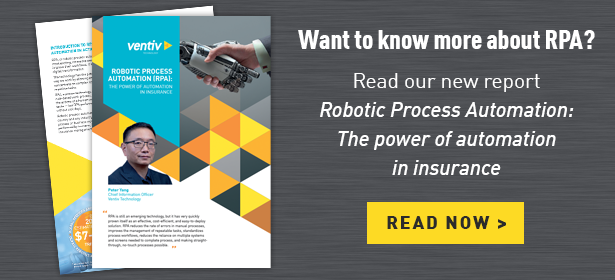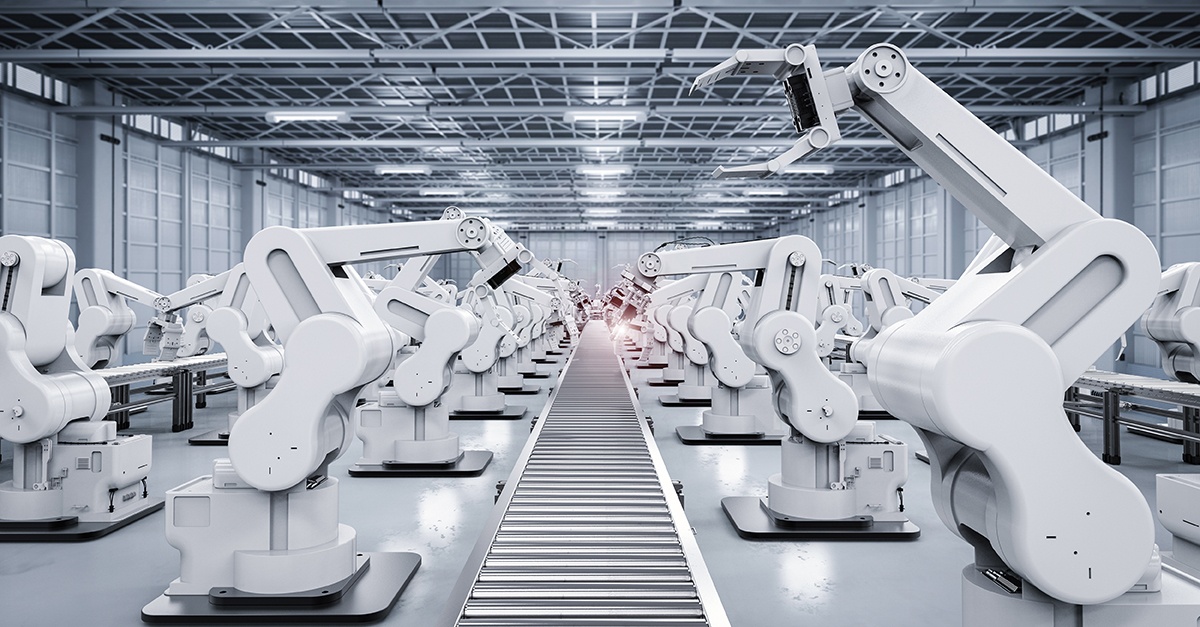There is a constant demand for more data, and managing this information can be a problem. Not only is there a challenge in what the evolution of robotic process automation (RPA) will look like, there is also the concern of data security and compliance.
We can expect many more businesses to harness RPA’s capabilities over the next five years. In particular, it will help businesses to manage big data sets, large volumes of requests and allow them to operate 24/7 in a global business world.
The evolution of RPA
Ventiv RPA can help to meet the current and expanding needs of managing data sets in organizations. This includes tying legacy systems together in a cost-effective way and automating more processes. In highly regulated industries, RPA can also help to eliminate errors that would affect compliance.
In the future, RPA will be able to perform more complex tasks and be designed to carry out bespoke processes that meet the needs of individual companies. This will all be made possible by improving the cognitive capabilities of RPA (e.g., integrating RPA with machine learning and artificial intelligence). So the next step for bots is moving from basic robotic process automation to learning on the job—moving more towards thinking like humans than being restrained by rules.
This means that bots will be able to better handle exceptions, more unstructured data formats and bend rules when needed—as a human would.
While this will mean that certain jobs will no longer be required, it will open up opportunities for new, less manual roles. This is an exciting time where new skills and technologies can work together to shape the industry of the future.
RPA, data security and compliance
As RPA evolves, it’s natural that there will be concerns for risk managers about data security and compliance. As with all technology, if AI is poorly managed, organizations leave themselves open to security exposures. However, if properly controlled as part of a risk management plan, the possibilities are endless.
GDPR and other data privacy laws being introduced across the world mean businesses need to know exactly what data they hold, how it was collected, how and why it is being processed, and that they have explicit consent to have and use it. Human error leaves companies open to breaches of these policies. Bots, on the other hand, ensure everything is logged and monitored. If something goes wrong, it is flagged and someone is notified which creates an audit trail. And if a process changes, the bots can be programmed to carry out the task in a different way.
Security is obviously a top priority for RPA
Ventiv has in place measures to mitigate any risks of rogue bots. Ventiv’s control room monitor bots, while Ventiv clients can control the bots through an application. Depending on the company, specific permissions can be set for each bot. The level of security can be controlled in the same way one would set-up controls for human employees. In essence, bots are treated just like human workers.
The security control that you have over an AI bot is equal, if not better, than over a human worker. You set security access levels for bots as you would for a human user and they can only carry out tasks that fall into its permission settings.
You can also implement settings that ensure your bots create complex passwords which they won’t forget (i.e., no “password1”) and you can set the frequency that they need to change them. This gives businesses more control over compliance, as people are often the weak link in IT security—using weak passwords, writing them down and not updating them regularly enough. Bots do what IT security tells them to do.
RPA: Is it the future for all businesses?
It is likely that even businesses that fall behind in technology progression will eventually embrace a certain amount of automation to improve business processes. It is an exciting time in data security and Ventiv continues to be at the forefront of IT security advances and provide risk management software solutions that offer an excellent return in investment.
Jarrod Albert is senior manager, Automation & Integration, with Ventiv Technology. Email Jarrod at jarrod.albert@ventivtech.com.












